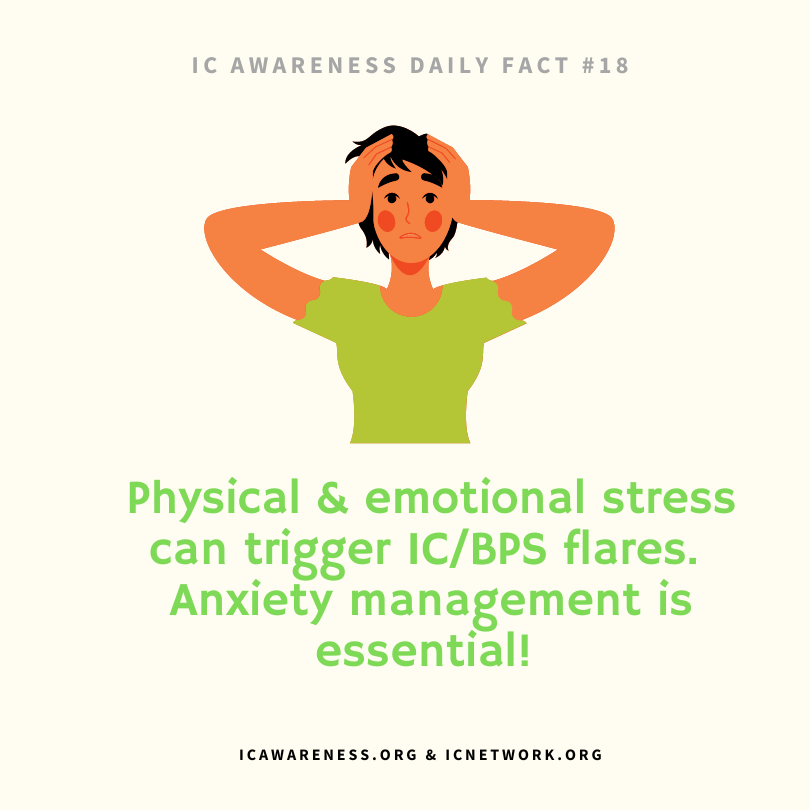
There is no doubt that stress can trigger an increase in our symptoms, aka an IC flare. Physical stressors (traveling, holding urine for a long period of time or exposure to extreme heat or cold) can trigger pain and discomfort, often in the form of pelvic floor tension and spasms. Emotional stress (arguments, a death in the family or social media insults) can also trigger an increase in urinary symptoms. I, for example, don’t like flying. I’ve had some close calls, including flying in a plane that nearly crashed. Thus, I have a very predictable stress response when I travel – an IC and IBS flare the night before. It’s miserable but, thoroughly empty, I usually do get on the plane and make the trip. It’s not fun. It’s never been fun. This is how my body has responded to flying for the past forty years.
Let’s take a closer look at why this happens. When our body is under intense stress, the sympathetic nervous system takes control of your brain and triggers the “fight or flight” response. It prepares your body to fight for its life and/or to flee. The heart and lungs accelerate. Digestion slows and stops. Blood vessels become dilated and muscles become tense. Normally, once the stress or threat is gone, the “fight or flight” mechanism turns off. The parasympathetic nervous system regains control of the brain and sends relaxation messages throughout the body, allowing the heart to calm and muscles to relax. But, for some, that doesn’t happen.
Prolonged “fight or flight” is now believed to be the root cause of chronic overlapping pain conditions (IC, IBS, fibromyalgia, vulvodynia, TMJ, migraines, etc.). Anxiety and catastrophic thinking is a clear signal that your brain is stressed, as well as restlessness, irritability, anger and depression. The most dangerous aspect of prolonged “fight or flight” is suppression of the immune system.
Mind-body medicine has become an essential treatment for patients who struggle with stress, anxiety and bladder pain because it helps to heal our injured central nervous system. As long as a patient is struggling with anxiety and stress, their pain will be intensified. Easing anxiety and taking control of stress reduces pain throughout the body, including: relaxation, exercise, meditation, tai chi and gentle yoga. Consider taking a class or working with a therapist who specializes in anxiety management. There is no shame. We are all under intense levels of stress these days. Let’s work together to help and comfort each other. No shame. No blame. – Jill Osborne!
Additional Resources
- ICN Emotional Health Center
- Frannie Rose – Reading Frannie Rose is like receiving a hug when you need it the most. She is a patient-advocate, inspirational speaker and writer on chronic illness, spirituality and faith.
- Guided Imagery Audios For Men & Women With Pelvic Pain (FREE) –
Tik Tok
@icnetworkjill IC Awareness Month Daily Fact 18 – Stress can cause IC flares. Learn why! #ic #ictok #icawareness ♬ original sound – IC Network
Past Images

